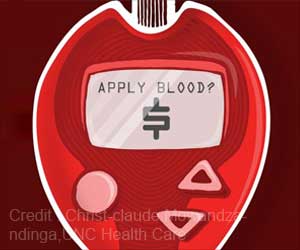Highlights
- The drug semaglutide results in better glycemic control in those with type 2 diabetes.
- The oral formulation of semaglutide, a glucagon-like peptide-1 (GLP-1) receptor agonists may improve acceptance and adherence than the injectable form.
- Improved HbA1c levels of less than 7 and weight loss of more than 5% of the usual body weight were observed in those who took the pill.
Dr. Melanie Davies, "The A1C reductions and weight loss were very impressive and similar to what we’ve seen with the weekly injection of semaglutide."
Semaglutide
Semaglutide is a pharmaceutical drug in development by Novo Nordisk for the treatment of type 2 diabetes. Semaglutide is a glucagon-like peptide-1 (GLP-1) analog and functions as a GLP-1 agonist.
Glucagon-like peptide-1 receptor agonists also known as GLP-1 receptor agonists or incretin mimetics are agonists of the GLP-1 receptor. This class of drugs is used for the treatment of type 2 diabetes.
About the study
Body weight and HbA1c levels were assessed before and after 26 weeks.
- Oral semaglutide reduced the hemoglobin Alc (HbA1c) level from baseline to week 26 . The change was in accordance with the dose level.
- Oral semaglutide reductions in HbA1c were significant compared to the placebo.
- From an average baseline HbA1c level of 7.9%, patients receiving oral semaglutide achieved the target HbA1c level of less than 7 percent.
- Clinically relevant (5 percent or more) weight loss was achieved in up to 71 percent of patients receiving oral semaglutide.
There were three reported cases of pancreatitis, that is, inflammation of the pancreas. This is a potentially serious condition that has been linked to this class of medication.
Although several type 2 diabetes treatments are available, therapy selection involves consideration of the risks of adverse effects such as hypoglycemia (low blood sugar) or weight gain and complexity of treatment.
The oral formulation of semaglutide, a glucagon-like peptide-1 (GLP-1) receptor agonists (a class of drugs used for the treatment of type 2 diabetes) may improve acceptance and adherence for some patients compared with the injectable formulation of GLP-1 receptor agonists.
GLP-1 drugs, whether by injection or by mouth, should be given in combination with the standard first line type 2 diabetes drug metformin.
Reference
- Melanie Davies, Thomas R. Pieber, Marie-Louise Hartoft-Nielsen, Oluf K. H. Hansen, Serge Jabbour, Julio Rosenstock. Effect of Oral Semaglutide Compared With Placebo and Subcutaneous Semaglutide on Glycemic Control in Patients With Type 2 Diabetes. JAMA (2017), doi:10.1001/jama.2017.14752.
Source-Medindia
















